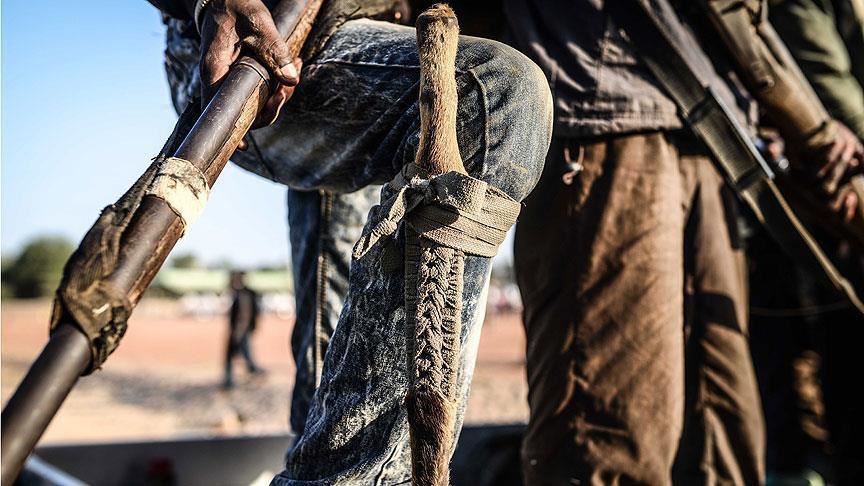
KIGALI, Rwanda
The Sahel region, the arid area on the southern fringe of the Sahara Desert, has witnessed unprecedented levels of violence since 2015, with militant groups seeking to extend their influence across West Africa.
Reports indicate that countries of the Sahel recorded a number of victims of violent attacks four times higher in 2018 compared to 2012.
Between November 2018 and March 2019 the rise in civilian victims varied from 300% up to 7,000% in some Sahel countries, compared to the same period in the previous year, according to figures by Moroccan Foreign Minister Nasser Bourita, at the 10th Ministerial Meeting of the Global Counter Terrorism Forum, held in New York on Sept. 25.
The statistics show that in the first six months of this year, more than 200 terrorist attacks occurred on the continent, resulting in over 5,000 security and civilian victims.
Several factors explain the proliferation of terrorist groups in the Sahel region, according to Freddie David Egesa, a security analyst based in Uganda’s capital Kampala.
“There is infighting between the different warlords, but there are three major causes including religious extremism, perceived invasion and control of territory,” Egesa told Anadolu Agency.
About 23 people were killed in an attack at gold mine site in northern Burkina Faso on Oct. 5, the latest in a spate of violence generally linked to Al-Qaeda.
Earlier 29 people had been killed in two separate attacks in northern Burkina Faso on Sept. 8, the government said.
In August, suspected militants killed 24 soldiers in the deadliest attack on the country’s military base.
Hundreds of people have been killed so far this year in Burkina Faso and an estimated 300,000 displaced.
“The attacks are recurring because many of the fighting forces have external influence. Many may be having sponsors so they want to demonstrate and possibly indicate value for money activities in terrorism,” said Egesa.
“That is a war which doesn’t have an agenda, and there are times when wars or terrorism become commercial”.
– Inadequate funding
The G5 Sahel, a joint task force created in 2014 to try to tackle the problem with the backing of former colonial power France, has not been effective reportedly due to inadequate funding, training and equipment.
Since July 2017, it pooled 4,000 strong troops from Burkina Faso, Chad, Mali, Mauritania and Niger in a bid to repress the militant groups.
“This regional military arrangement does not have the necessary military clout to come to the rescue of the affected nations,” Oscar Kimanuka, a Kigali-based analyst told Anadolu Agency.
“What is happening is that the individual governments are struggling to end the militants and extremists from undermining national sovereignty with difficulties”.
Niger and Mali allocate about a fifth of their annual budgets to defense.
On Oct. 1, an attack by insurgents targeted two Malian army bases, leaving some 38 soldiers dead.
Mali drifted into conflict in 2012 after a loose alliance between ethnic Tuareg separatists and Islamist fighters, with ties to Algeria and Libya, captured a large territory in the north.
A 15,000-troop of strong UN peacekeeping mission is struggling to contain the situation.
“The peacekeepers are trying their best, but war is about ideology,” said Egesa, and added: “Foreign troops need to justify their involvement in this war or demonstrate their strength for the locals to trust them”.
Since the forces don’t seem to have an upper hand the international community should come up with better plans, he noted.
– Redesign counter-terror strategy
“There is a need to redesign their approach to the problem especially in terms of planning, facilitation and the like,” said Egesa.
Rwandan President Paul Kagame thinks while the affected countries are putting effort to deal with the insurgency their capacity is yet to match the problem.
“Individual countries not only in that part of West Africa but on the whole continent need to build capacities to have the armies, police that can protect and defend their territorial integrity,” Kagame said, addressing Africa youth gathering in Rwanda’s capital Kigali on Oct.10.
“Eventually Africans we need to take responsibility, you cannot ask somebody else to come and keep security in your country”.
At least 15 people were killed, and four injured in the town of Salmossi, which is near the border with Mali. The lives of hundreds of thousands of civilians in the north of the country are disrupted by growing numbers of attacks, and insecurity.
Last week, some 1,000 people are reported to have protested in Burkina Faso’s capital Ouagadougou, denouncing the violence and the presence of foreign military forces in the region, according to the UN.
Armed groups have also intensified attacks in Burkina Faso’s neighboring countries of Mali and Niger. Regions around the three countries’ borders are new hotspots of violence.
Operating in sparsely populated, impoverished regions with little Government presence, armed groups are roving across borders and expanding areas of influence. Attacks have already spilled over into Benin in 2019.
Overall, 5.4 million people in the affected regions need urgent assistance, including 3.2 million in Mali, and 700,000 people in western Niger, according to the UNHCR.





